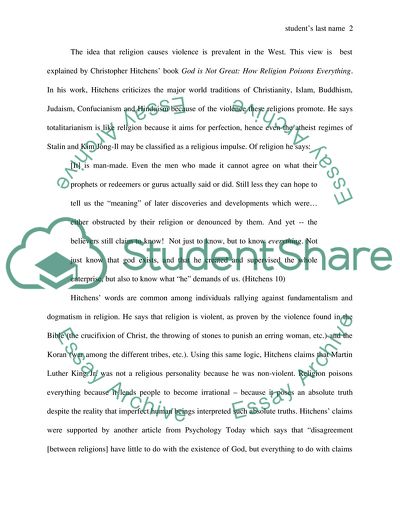Cite this document
(God is Not Great: How Religion Poisons Everything Book Report/Review Example | Topics and Well Written Essays - 2000 words, n.d.)
God is Not Great: How Religion Poisons Everything Book Report/Review Example | Topics and Well Written Essays - 2000 words. https://studentshare.org/religion-and-theology/1771993-religious-violence
God is Not Great: How Religion Poisons Everything Book Report/Review Example | Topics and Well Written Essays - 2000 words. https://studentshare.org/religion-and-theology/1771993-religious-violence
(God Is Not Great: How Religion Poisons Everything Book Report/Review Example | Topics and Well Written Essays - 2000 Words)
God Is Not Great: How Religion Poisons Everything Book Report/Review Example | Topics and Well Written Essays - 2000 Words. https://studentshare.org/religion-and-theology/1771993-religious-violence.
God Is Not Great: How Religion Poisons Everything Book Report/Review Example | Topics and Well Written Essays - 2000 Words. https://studentshare.org/religion-and-theology/1771993-religious-violence.
“God Is Not Great: How Religion Poisons Everything Book Report/Review Example | Topics and Well Written Essays - 2000 Words”. https://studentshare.org/religion-and-theology/1771993-religious-violence.


